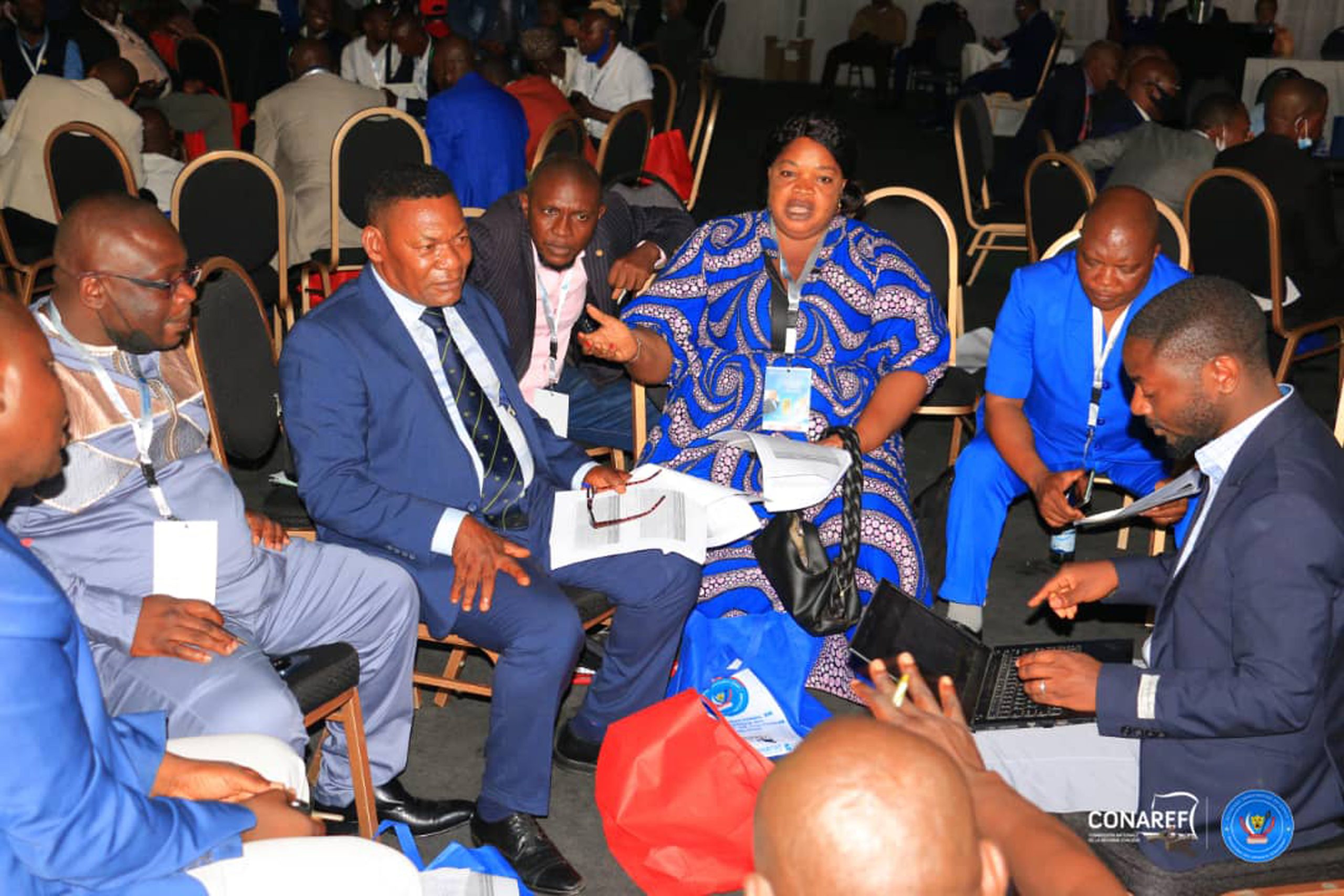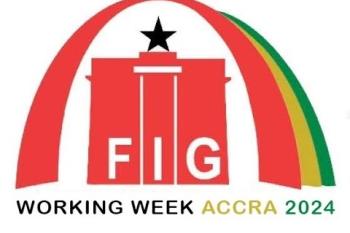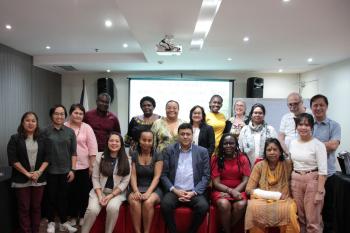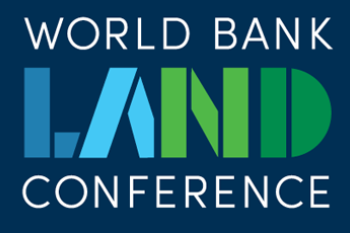
Toward a land policy in the Democratic Republic of Congo: National validation workshop, Kinshasa 15-17 November 2021
 Participants debating how to improve the National Land Policy Document
Participants debating how to improve the National Land Policy Document
These consultations resulted in a second draft in 2021, which has been reviewed by the National Land Reform Commission (CONAREF), international consultants and civil society organizations. The revised second draft was the subject of the Kinshasa national validation workshop. This workshop gathered final contributions to the National Land Policy Document. The workshop was launched by Aimé Sakombi Molendo, Minister of Land Affairs. The more than 300 participants included national and international representatives, provincial and local entities, private sector, and civil society organizations. Traditional authorities from different communities, women, persons with disabilities, and indigenous (“Pygmy”) groups were represented. The event was facilitated by UN-Habitat under the leadership of the Ministry of Land Affairs through CONAREF with the financial support from the National REDD+ Fund (FONAREDD), funded by the Central Africa Forest Initiative (CAFI). The validation enabled CONAREF to engage with stakeholders on the final aspects of the land policy document and show how their comments and inputs were integrated into the second draft. The workshop also discussed the five strategic pillars of the policy:
- Improvement of land tenure system
- Strengthening capacities of land administration, decentralized entities and intersectoral coordination
- Social safeguarding of land governance
- Attractiveness and productivity of land
- Environment protection and sustainability.


